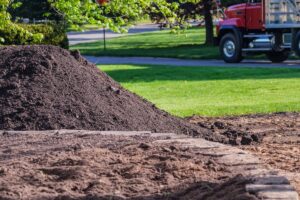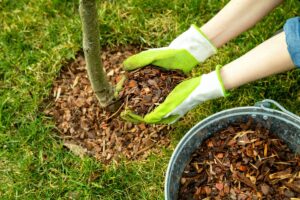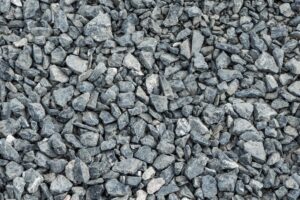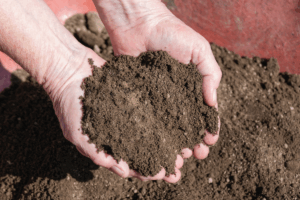Sand, a granular material composed of finely divided rock and mineral particles, is ubiquitous in our natural world. It forms the basis of beaches, deserts, and river beds and is involved in even more natural occurrences. However, in parallel to its natural importance, it plays an important role in improving the building industry as well. Although sand can also be found on the seashore, it is one of the most widely used materials in the construction of roads and bridges, as well as for creating concrete, paving stones, and gardens. Whether sourced from a sand supplier in Eatonville, Gig Harbor, Graham, Lakewood, Port Orchard, Puyallup, Steilacoom, Tacoma, Bonney Lake, and surrounding WA areas, the quality and type of sand can significantly impact project outcomes.
In this blog post by Randles Sand and Gravel, we’ll examine the array of sand options supplied and how they differ.
What are the types of sand?
Not all sand is created equal. There are many different variations, each with its own unique properties and applications. Here’s a closer look at some of the most common types of sand:
Concrete Sand:
The term concrete sand is quite self-explanatory, considering that it is meant to be used in concrete mixtures. It generally comprises gravel (or particles with sizes varying from 0. 07 mm to 4. 75 mm), which provides a rigid base for concrete structures.
Masonry Sand:
Top sand suppliers in Lakewood reveal that masonry sand is another type of clean, coarse-graded sand. This sand ranges from 1 mm to 5 mm in size and is commonly used as mortar for constructing bricks. The minor difference in the size of the particles enables the mortar to bond better with bricks and stones.
Fill Sand:
Fill sand, or general fill sand, is a more general category of sand that can be used for almost any fill application, including filling and backfilling around structures, creating adequate drainage, or filling any low area. It has a larger particle size distribution, usually having particle sizes between 0. As is apparent from the figures indicated above, the reinforcing bars used are 10 mm, 8 mm, 07 mm, and 5 mm in diameter.
Beach Sand:
Beach sand is commonly used mainly for recreation but also for business purposes. Nonetheless, because its particles are small and round, it is not mostly used in construction works. This method may also be used for sandblasting or filtration when applied as a thin layer.
Play Sand:
Play sand is clean, fine-grained sand specifically designed for use in playgrounds and sandboxes. Leading sand suppliers in Bonney Lake, WA, caution that it’s extremely important to choose play sand that meets safety standards to ensure children’s well-being.
What are the different sources of sand for construction?
Sand can be sourced from a variety of locations, including:
1. Riverbeds:
Flood water in rivers tends to erode sand and transport and deposit it in various sizes throughout other years in the form of sand bars or beaches. Such deposits can best be exploited, especially for construction.
2. Ocean Dredging:
Coastal areas are also sources of sand through dredging activities, especially in terms of supply construction requirements. However, according to the top sand suppliers in Gig Harbor, this process has some drawbacks and can negatively affect the environment, so it is necessary to control it.
3. Sand Quarries:
Sand can also be obtained by digging other sand quarries as a stone is being quarried. This is a common method of ensuring that construction sand is both reliable and of good quality in the construction industry.
4. Recycled Materials:
Modern construction projects in some parts of Eatonville,Graham, and surrounding areas incorporate recycled sand to improve sustainability. This can be done by crushing concrete and other materials to produce usable sand particles.
What are the three properties of sand?
The suitability of sand for a particular application depends on three key properties:
Grain Size:
As discussed earlier, the size of sand particles plays a crucial role in its functionality. Coarser sands are better for drainage and fill applications, while finer sands are more suitable for use in concrete or mortar.
Gradation:
Gradation refers to the distribution of particle sizes within a sand sample. Well-graded sand has a mix of different particle sizes, which helps to create a dense and stable material. Poorly graded sand, with mostly uniform-sized particles, can lead to weak and unstable structures.
Shape:
The shape of sand particles can also influence their properties. Round and smooth particles tend to pack less densely, while angular and irregular particles can create a stronger interlocking effect.
Call us to discuss how we can help you with your projects.
What are the different types of sand available from Randle’s Sand and Gravel?
Randles Sand and Gravel offers a variety of high-quality sand types, each tailored for specific construction, landscaping, and recreational projects. Here’s a detailed look at the different types of sand available:
Concrete Sand:
Available in various gradations to suit your project’s specific needs, Randle’s Sand and Gravel’s concrete sand are ideal for producing strong and long-lasting concrete foundations, driveways, and slabs.
Masonry Sand:
We also provide top-tier masonry sand that is meticulously sized for exceptional mortar and bricklaying projects. Their expertise ensures you get the right sand for a sturdy and aesthetically pleasing outcome, whether you’re building a fireplace in Lakewood or a retaining wall in Graham.
Fill Sand:
Randle’s Sand and Gravel offers high-quality fill sand for backfilling foundations, creating efficient drainage systems, or raising uneven areas. Our fill sand solutions are perfect for projects throughout the Puget Sound region, from Steilacoom to Eatonville.
Decorative Sand:
Looking to enhance your landscaping or create a fire pit feature? Randle’s Sand and Gravel carries a selection of decorative sand in various colors and textures. Add a touch of elegance to your outdoor space in Puyallup, Gig Harbor, or any other location we serve.
Beach Sand:
Beach sand has a natural aesthetic appeal and is ideal for landscaping projects aiming to create a serene, beach-like atmosphere. However, due to its granular consistency, it is not recommended for construction.
Play Sand:
Our team at Randle’s Sand and Gravel prioritizes safety. Their play sand meets the highest standards, ensuring a clean and fun environment for children in playgrounds and sandboxes across the Pacific Northwest.
Pit Run Sand:
Pit run sand is a mix of sand and gravel often used for large-scale projects. It provides substantial support and stability as foundational fills.
Randle’s Sand and Gravel: Your Partner in Sand Solutions
By understanding the different types of sand and their properties, you can make informed decisions for your construction or landscaping project. When it comes to selecting the right sand supplier, Randle’s Sand and Gravel stands out as your reliable partner.
Here’s why Randle’s Sand and Gravel is the perfect choice for your sand needs:
Local Expertise:
Given our profound knowledge of the Pacific Northwest region’s characteristics, our Randle’s Sand and Gravel team can offer valuable recommendations on the appropriate sand type for the given area and project context.
Quality Commitment:
The sand we use in our production process is obtained from reputable supply companies. A strict quality check guarantees optimum productivity and product resilience.
On-Time Delivery:
Randle’s Sand and Gravel understands the importance of delivering sand at the right time. That is why we supply sand to your construction project in Tacoma, Lakewood, Port Orchard, and other cities in the shortest time possible.
Competitive Prices:
We offer competitive pricing on our sand products, ensuring you get the best value for your investment.
Environmental Responsibility:
Randle’s Sand and Gravel is committed to sustainable practices. Our work with reputable quarries that prioritize responsible sand mining techniques.
Final Takeaway
Sand is as essential as the foundation when it comes to construction and landscaping across the world. This article will explore the types of sand and their characteristics to ensure that one can make a proper decision depending on the articulated aim and expectation. Due to the extensive range of superior quality sands, local knowledge, and dedication, our team at Randle’s Sand and Gravel is thus the ideal sand supplier for all your requirements in the Pacific Northwest region including Tacoma, Puyallup, Gig Harbor, Graham, Lakewood, Port Orchard, Steilacoom, and Bonney Lake, and nearby WA areas.
Ready to start your project? Contact Randle’s Sand and Gravel today for a free consultation and quote. Our knowledgeable team is happy to answer your questions and recommend the perfect sand solution for your specific needs.







